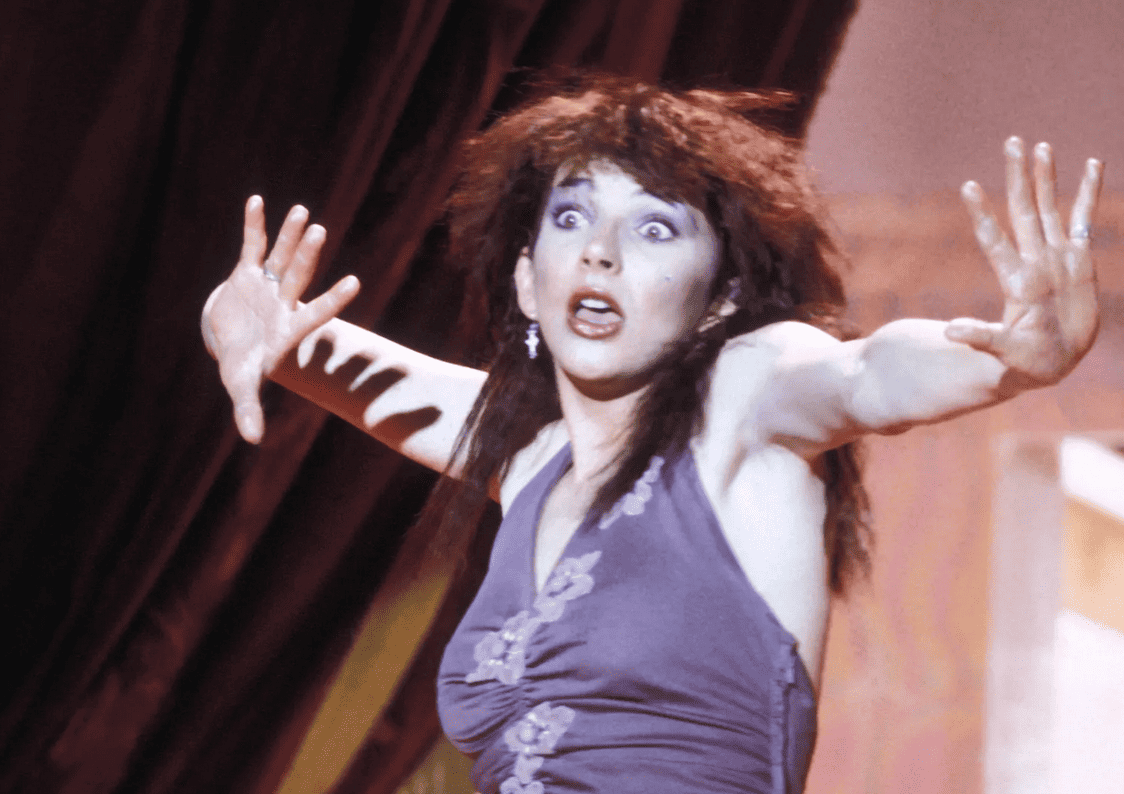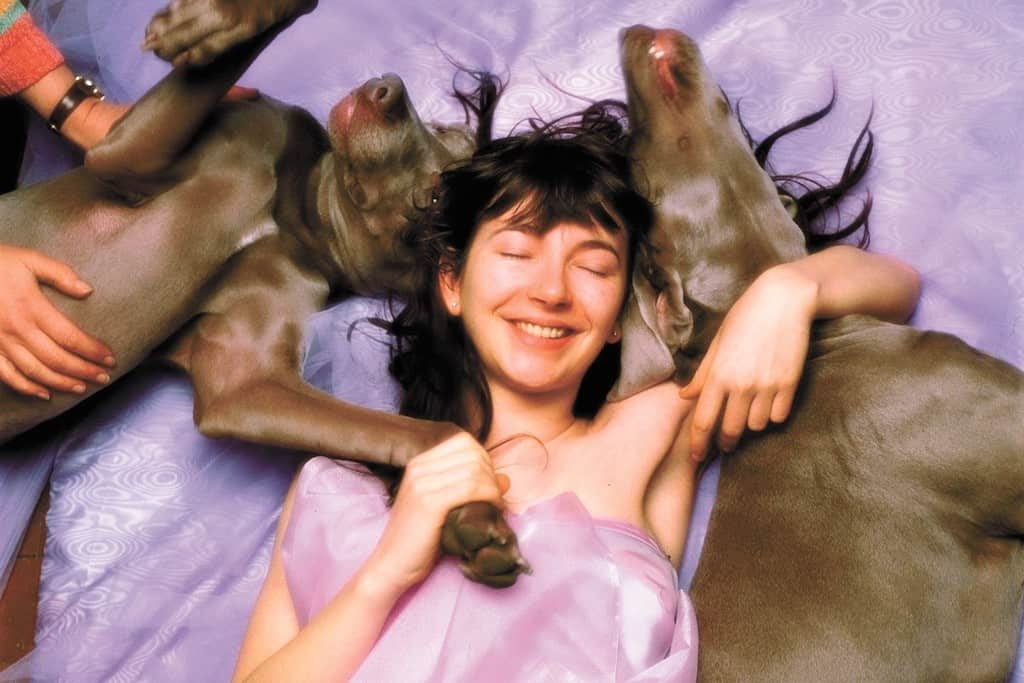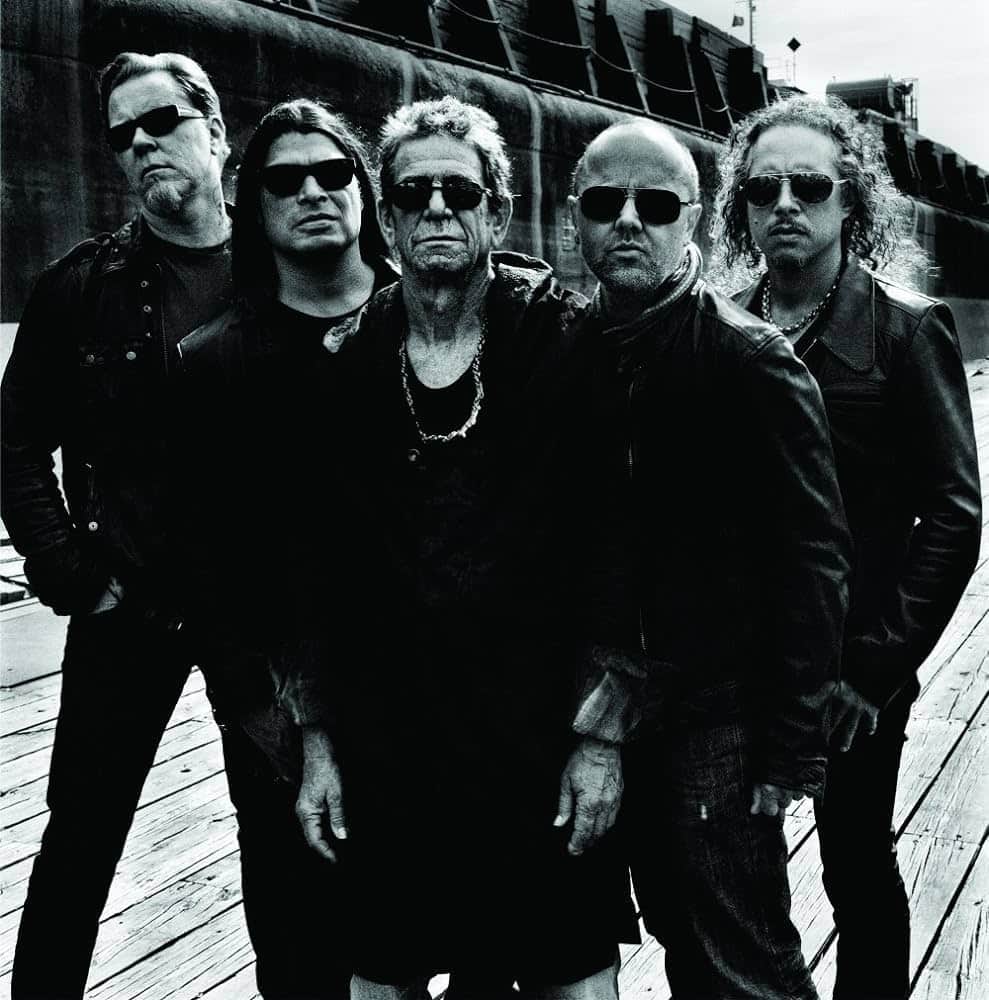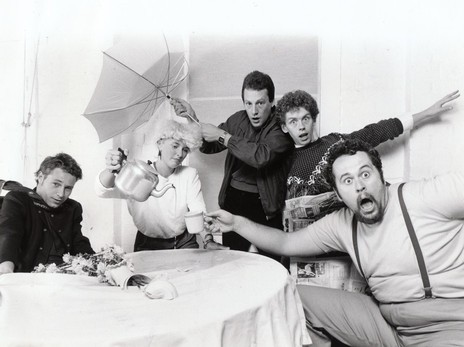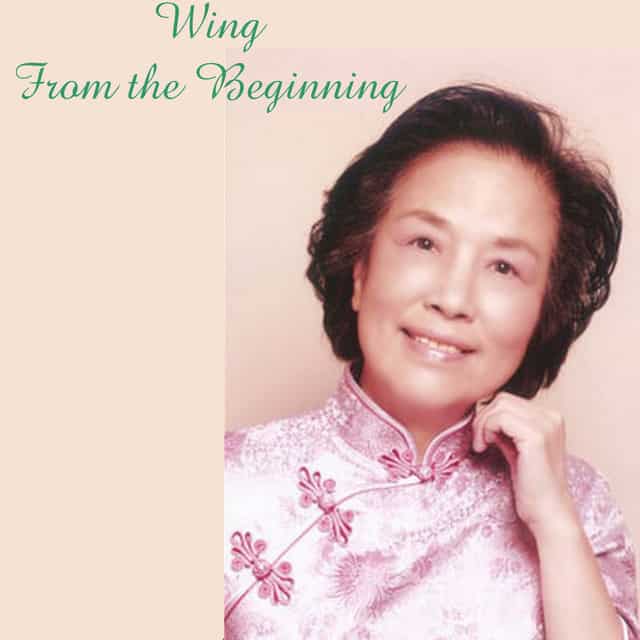She’s rock royalty with an old song riding high in the charts, but not so long ago Kate Bush was mercilessly ridiculed, writes GARY STEEL.
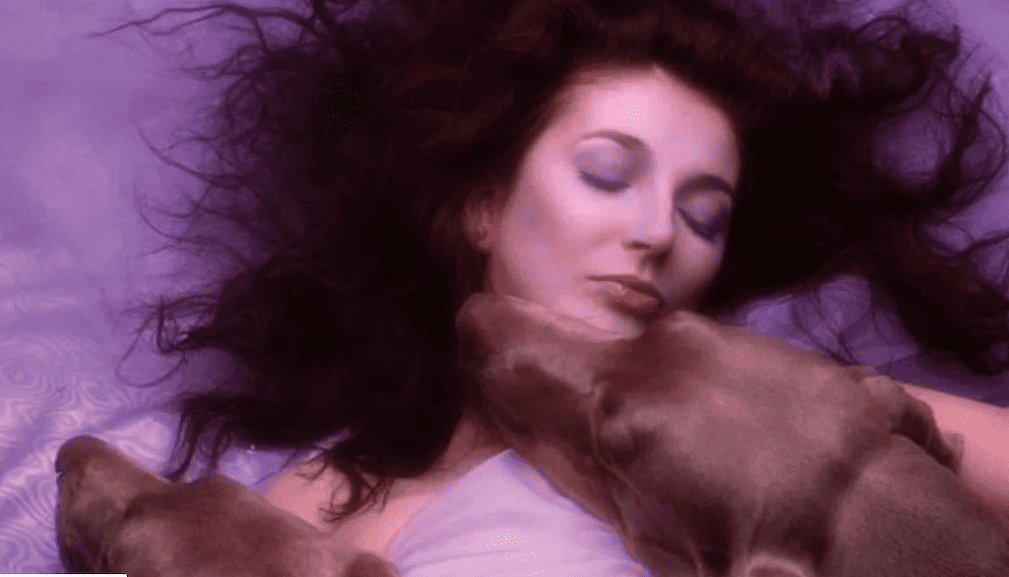 It was 2005 and I was at the launch of Vodafone’s first-ever mobile phone with live video capability. Hundreds of media and sundry liggers were gathered in the international corporate’s spacious atrium in downtown Auckland. Our attention was drawn to a stage where Kate Bush suddenly blurted out her 1978 hit, ‘Wuthering Heights’. Kate didn’t make a personal appearance, of course. It was just the recording. The crowd tittered at the ridiculousness of it all.
It was 2005 and I was at the launch of Vodafone’s first-ever mobile phone with live video capability. Hundreds of media and sundry liggers were gathered in the international corporate’s spacious atrium in downtown Auckland. Our attention was drawn to a stage where Kate Bush suddenly blurted out her 1978 hit, ‘Wuthering Heights’. Kate didn’t make a personal appearance, of course. It was just the recording. The crowd tittered at the ridiculousness of it all.
Would you like to support our mission to bring intelligence, insight and great writing to entertainment journalism? Help to pay for the coffee that keeps our brains working and fingers typing just for you. Witchdoctor, entertainment for grownups. Riveting writing on music, tech, hi-fi, music, film, TV and other cool stuff. Your one-off (or monthly) $5 or $10 donation will support Witchdoctor.co.nz. and help us keep producing quality content. It’s really easy to donate, just click the ‘Become a supporter’ button below.
And then the music stopped and some rank DJ made a joke about how of course we hadn’t come to listen to Kate Bush, what we really needed was some real music. And behind us, New Zealand band The Feelers – the actual band – suddenly burst to life with one of the drab, grinding and deplorably imitative songs that had made them a platinum success story.
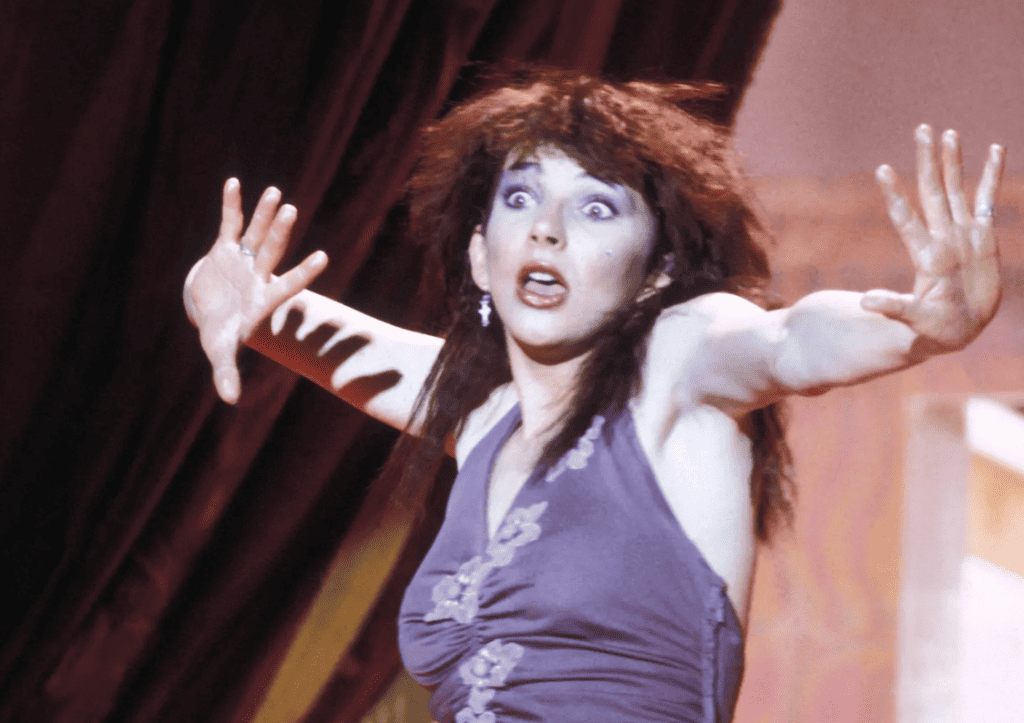 While the gathered punters seemed to appreciate the stunt, I quickly made my exit. How dare they make fun of my Kate! I was outraged, but I felt unable to open up and bleed. I’d just been made the editor of a manly gadget magazine which featured scantily-clad females on every cover. I wasn’t about to expose my sensitive, Kate Bush-loving side to these macho pricks. (Yes, I tried to change the titty-girl-holding-a-fab-gadget schematic. The two issues I produced without “the chicks” were its worst-ever selling and my boss made an executive decision to reinstate them).
While the gathered punters seemed to appreciate the stunt, I quickly made my exit. How dare they make fun of my Kate! I was outraged, but I felt unable to open up and bleed. I’d just been made the editor of a manly gadget magazine which featured scantily-clad females on every cover. I wasn’t about to expose my sensitive, Kate Bush-loving side to these macho pricks. (Yes, I tried to change the titty-girl-holding-a-fab-gadget schematic. The two issues I produced without “the chicks” were its worst-ever selling and my boss made an executive decision to reinstate them).
A few years before, when I was running an increasingly loss-making record shop and a relatively brief but incredibly tumultuous romantic liaison had gone horribly wrong, I had found tremendous solace in Kate’s box, a CD set which gathered up all her albums and added a couple of compilations of odds and sods. Kate – and only Kate – gave me solace, allowed me to breathe in the grief and face the loss and begin to feel a lust for life again.
Even back then, around the turn of the century, I detected a surprising affection for Kate Bush amongst my music-loving friends. It was a kind of “aww, Kate Bush, bless her!” attitude that recognised her genius but also the assumed loopiness of someone whose art and persona were so very vulnerable and exposed. Although my female friends at the time mostly simmered in the more declamatory and obviously feminist sensibilities of more contemporary singer-songwriters, they knew that Bush represented something incredibly special.
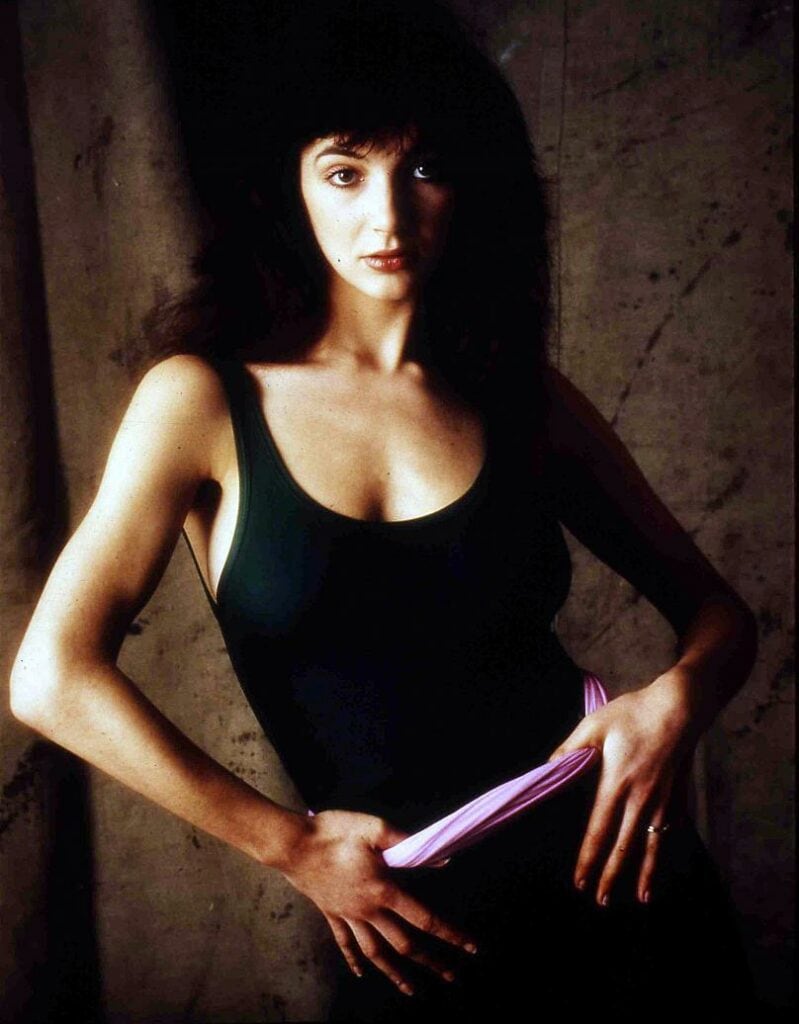 Generally, however, she was viewed as a freakish novelty with a squeaky voice and bookish ballads who hadn’t released an album since 1993 and was therefore, off the musical agenda. Of course, dedicated fans came out to drool when she released her comeback double album Aerial in 2005, and again in 2011 when 50 Words For Snow hit the record racks. Just like that other musical genius, Joni Mitchell, over the past 10 years Kate Bush has slowly become recognised as one of the most important artists of her time.
Generally, however, she was viewed as a freakish novelty with a squeaky voice and bookish ballads who hadn’t released an album since 1993 and was therefore, off the musical agenda. Of course, dedicated fans came out to drool when she released her comeback double album Aerial in 2005, and again in 2011 when 50 Words For Snow hit the record racks. Just like that other musical genius, Joni Mitchell, over the past 10 years Kate Bush has slowly become recognised as one of the most important artists of her time.
But it took the repeated exposure of her 1985 hit ‘Running Up That Hill’ on Season 4 of the Netflix hit show Stranger Things to re-introduce her to the general public and expose her to a whole new generation of music lovers.
Ironically, it was the album that song came off, Hounds Of Love, that turned me into a Kate Bush fan all those years ago. As a music reviewer, I’d heard a few of her previous albums and decided that they were just too prissy, too ballad-driven, too much like something from a musical starring Julie Covington, to warrant a place in my record collection. I was mired in the hard and energetic sensibilities of post-punk in the late ‘70s, and Bush seemed to me like a throwback to a previous era and a sensibility that was foreign to me.
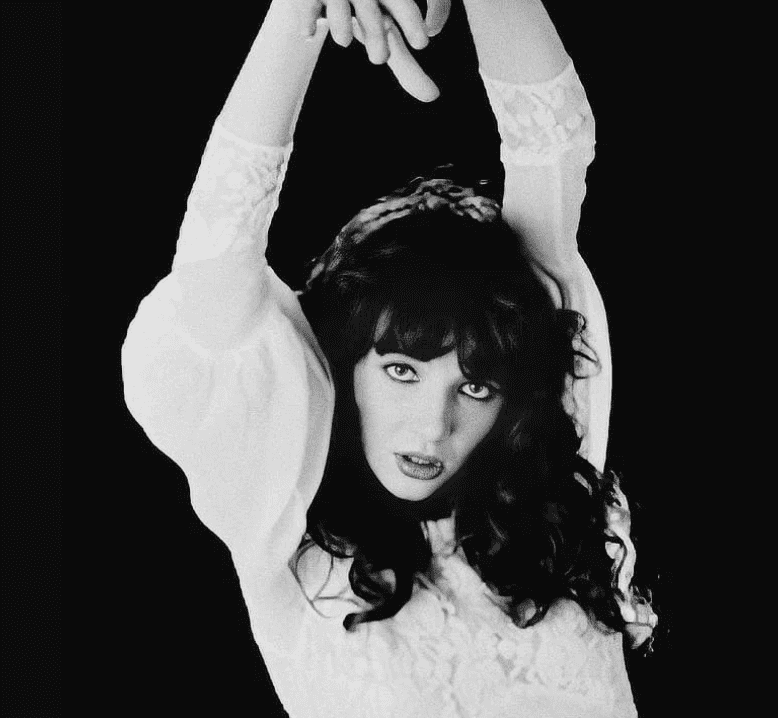 There was one exception: I loved the song ‘Breathing’ from her 1980 album Never For Ever, an epic and very unusual musical construction with an equally unusual lyric about a foetus about to enter a post-apocalyptic world. Golly, what a concept! It helped that one of my favourite folk-rockers, Roy Harper, appeared on the track. It turned out that she was a bit of a fan, which wasn’t surprising. He was mates with Pink Floyd’s David Gilmour, who had effectively discovered Kate, and he’d even sung on one of Floyd’s tracks, ‘Have A Cigar’.
There was one exception: I loved the song ‘Breathing’ from her 1980 album Never For Ever, an epic and very unusual musical construction with an equally unusual lyric about a foetus about to enter a post-apocalyptic world. Golly, what a concept! It helped that one of my favourite folk-rockers, Roy Harper, appeared on the track. It turned out that she was a bit of a fan, which wasn’t surprising. He was mates with Pink Floyd’s David Gilmour, who had effectively discovered Kate, and he’d even sung on one of Floyd’s tracks, ‘Have A Cigar’.
But it was a fellow music scribe’s enthusiastic recommendation that somewhat belatedly brought me to the extraordinary Hounds Of Love, and made a real fan of me. The album was practically a reinvention for Kate Bush. Her vocals were more mature and less freakishly squeaky, the music was armed with all the latest technology (with a central place for the Fairlight sampler), and the music itself was a revelation of originality. There’s still debate about this, and in fact the individual who recommended the album vehemently disagrees with me about it, but it’s the exploratory and immersive seven-song suite on the second side, The Ninth Wave, that truly takes it somewhere really special.
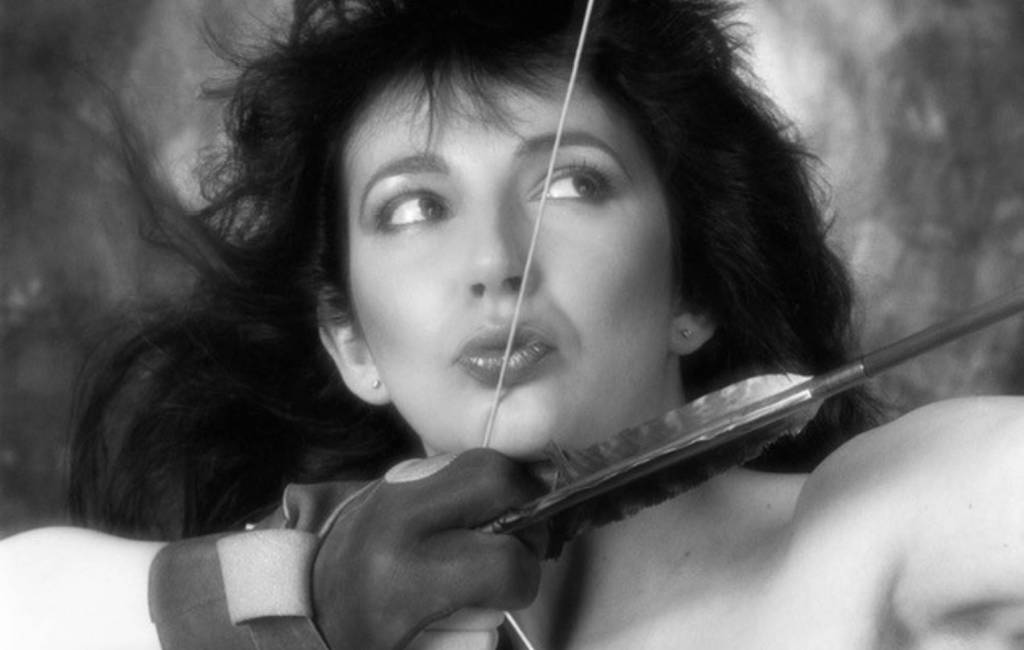 There’s so much embedded in The Ninth Wave – spectral ambience, awe-inspiring Georgian choral singing, infinitely trippy arrangements redolent of the best of the previous decade’s progressive rock – that it would take a long read to fully explicate its genius. But unlike the first side of Hounds Of Love, which sounds somewhat tagged and limited by the way its more conventional song format meshes with the now-dated technology of 1985, it still sounds quite outside of time.
There’s so much embedded in The Ninth Wave – spectral ambience, awe-inspiring Georgian choral singing, infinitely trippy arrangements redolent of the best of the previous decade’s progressive rock – that it would take a long read to fully explicate its genius. But unlike the first side of Hounds Of Love, which sounds somewhat tagged and limited by the way its more conventional song format meshes with the now-dated technology of 1985, it still sounds quite outside of time.
Inevitably, falling for Hounds Of Love led me straight back to her earlier albums and in retrospect, her phenomenal talent is of course there in spades right from her 1978 debut, The Kick Inside. Listening to it now, it’s still easy to understand why she was such an obvious target for parodists. ‘Wuthering Heights’, especially, is so fruity, so old-world. But it’s also still singular, and quite amazing. It’s not, however, the best thing here.
Listen closely to the first song, ‘Moving’, and allow yourself to be taken completely off-guard by the pitch-perfect vocal multi-tracking and Kate’s spectacularly unnerving passion in this gorgeous tribute to her mime teacher, Lindsay Kemp. Then there’s ‘The Man With The Child In His Eyes’, which amazingly, she’d composed at the age of 13 and recorded when she was just 15. The song is utterly lovely and somehow regal and both deeply naïve and mature at the same time. A friend of mine who committed suicide in the early ‘90s had it played at his funeral. It was his favourite song.
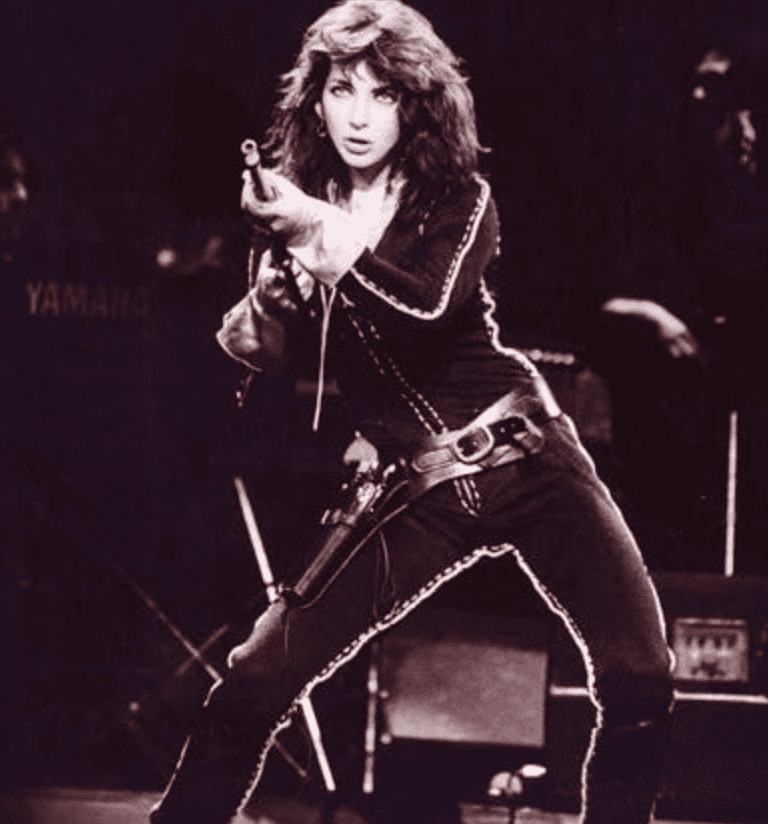 Listening to the then-career summary of the box set, This Woman’s Work (1990), it always seemed to me that every one of her albums was flawed but also touched by genius. I never much liked the more theatrical aspects of songs on the early albums or her occasional use of crummy cod-reggae, and the sampling techniques she used in the early ‘80s sound dated and lo-res now. And by 1993’s The Red Shoes it sounded like she had other things on her mind.
Listening to the then-career summary of the box set, This Woman’s Work (1990), it always seemed to me that every one of her albums was flawed but also touched by genius. I never much liked the more theatrical aspects of songs on the early albums or her occasional use of crummy cod-reggae, and the sampling techniques she used in the early ‘80s sound dated and lo-res now. And by 1993’s The Red Shoes it sounded like she had other things on her mind.
While the 1989 follow-up to Hounds Of Love, The Sensual World, was quietly stunning, The Red Shoes only had a few songs I ever wanted to go back to. One in particular, however, justified the whole sorry mess: ‘Moments Of Pleasure’ is a song about death, or at least a roll-call of people she knew or whose work she loved who had died. A lush ballad with the crucial ballast of Michael Kamen’s exquisite orchestral arrangement, it’s a piece I’ve played literally hundreds of times and one that seldom fails to elicit the urge to weep.
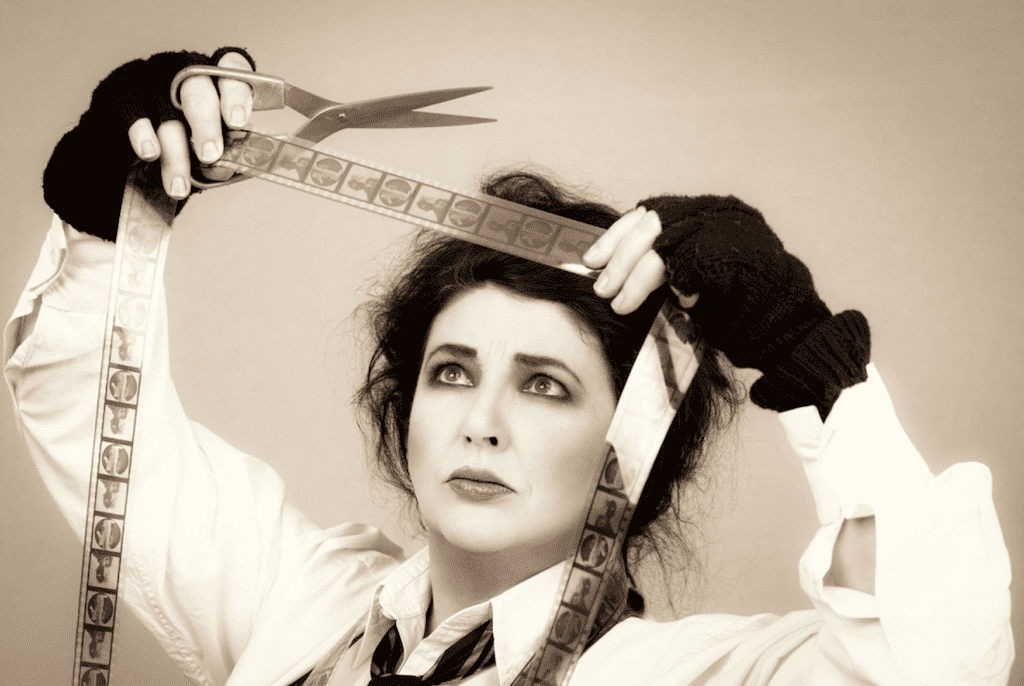 When Bush rebooted her career with Aerial in 2005, it was tempting to make a mockery of it. Several friends who were long-time fans rejected it out of hand. Bush was as honest as ever but she’d returned as a slightly eccentric middle-aged mum with different things on her mind. On one song she imitated birds with her voice and another was an ode to her washing machine! But really, why do great songs always have to be about the fantastical or illusory or impossible love?
When Bush rebooted her career with Aerial in 2005, it was tempting to make a mockery of it. Several friends who were long-time fans rejected it out of hand. Bush was as honest as ever but she’d returned as a slightly eccentric middle-aged mum with different things on her mind. On one song she imitated birds with her voice and another was an ode to her washing machine! But really, why do great songs always have to be about the fantastical or illusory or impossible love?
Although it hasn’t often been overt in her music, Kate Bush has always appreciated humour and has sometimes even gone along with what some thin-skinned artists might have considered quite hurtful parodies. Her art will probably never be evident to those blockheads at Vodafone who thought The Feelers were a better bet than Kate Bush, but she doesn’t need them. With the worldwide smash success of ‘Running Up That Hill (A Deal With God)’ turning her on to millions of fresh-faced fans, it’s just another twist in one of the most unusual, and most singular, artistic trajectories of modern times.

